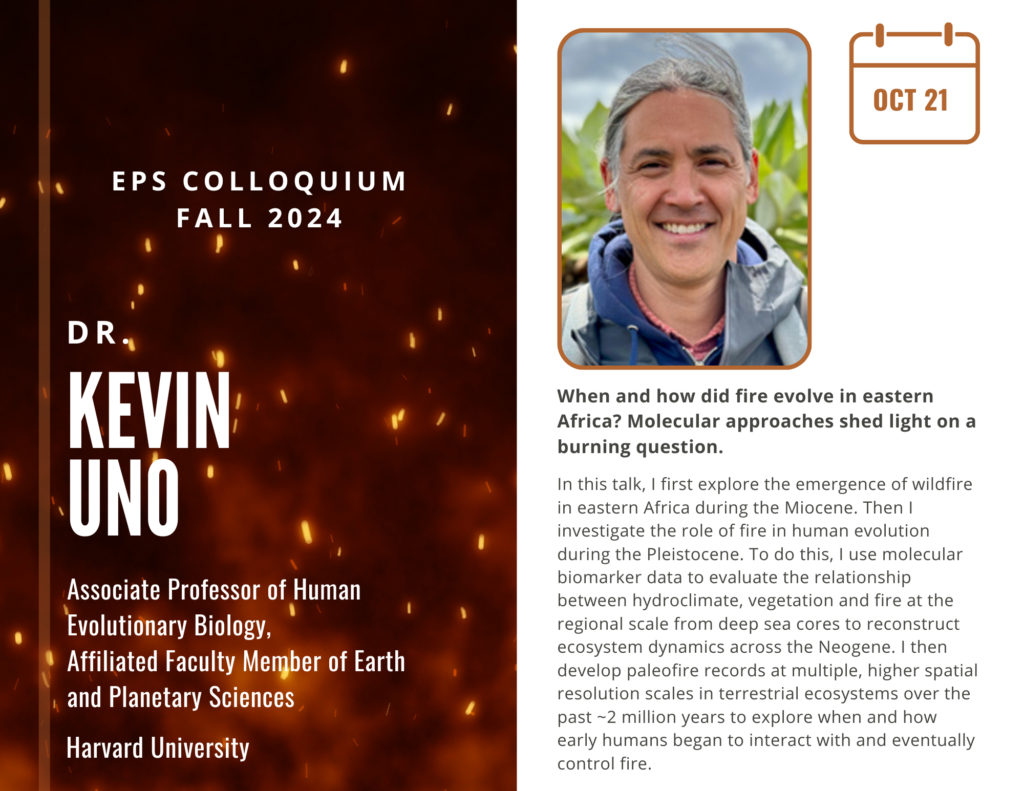EPS Colloquium – Kevin Uno, Harvard University
When and how did fire evolve in eastern Africa? Molecular approaches shed light on a burning question.
In this talk, I first explore the emergence of wildfire in eastern Africa during the Miocene. Then I investigate the role of fire in human evolution during the Pleistocene. To do this, I use molecular biomarker data to evaluate the relationship between hydroclimate, vegetation and fire at the regional scale from deep sea cores to reconstruct ecosystem dynamics across the Neogene. I then develop paleofire records at multiple, higher spatial resolution scales in terrestrial ecosystems over the past ~2 million years to explore when and how early humans began to interact with and eventually control fire.
To be added to the EPS colloquium mailing list, please contact Caroline Carr at carolinecarr@fas.harvard.edu.

Kevin Uno is an Associate Professor in the Department of Human Evolutionary Biology at Harvard University. He is a paleoecologist whose primary research focus is on exploring the role of climate and environmental change on mammalian and human evolution. To do this, he uses stable isotope and organic geochemical methods to reconstruct climate, vegetation, and mammalian diets from the Neogene (~24 Ma) to present. He has led or co-authored a series of papers that linked dietary changes in mammals and hominins to late Neogene vegetation change. Over the last 10 years, he has focused on development and application of molecular biomarker analyses on terrestrial and marine sediments to reconstruct ecosystem structure, hydroclimate, and fire in ancient environments.

